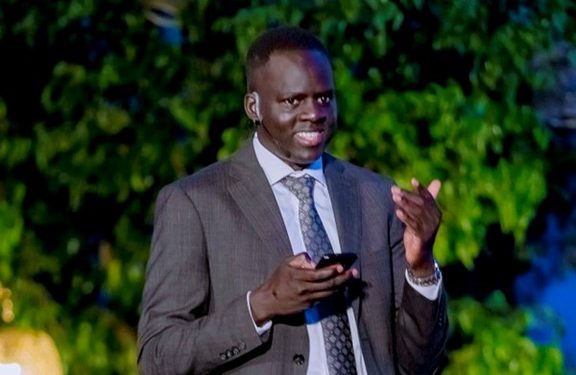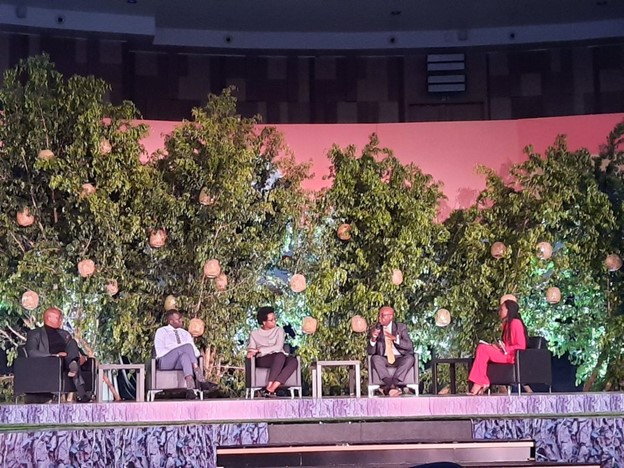Scholar Alum Speaks at the first-ever Africa Private Sector Forum on Forced Displacement

Africa Private Sector Forum on Forced Displacement had over 200 in-person and 600 virtual participants
According to the United Nations High Commission for Refugees(UNHCR), Africa hosts 36 million forcibly displaced persons—the largest number worldwide. It is against this backdrop that from November 30, 2021 to December 3, 2021, Africa’s business and industry leaders, philanthropists, refugee change-makers, and the public sector convened in Kigali, Rwanda, for “The 36 Million Solutions: Africa Private Sector Forum on Forced Displacement.” This first-of-its-kind meeting was created to allow all participants the chance to work together towards market-based approaches that will leverage the power of the 36 million forcibly displaced persons across the African continent. In most instances, when people are displaced from their homelands to live in refugee camps, they face an abundance of barriers such as lack of employment opportunities, and lack of access to quality education to equip them to find jobs, access credit lines, or start their own businesses. Refugee access to markets will create more economic opportunities, to help enhance the transformation of the entire community.

Mastercard Foundation Scholar Alum, Bior Ajak, speaks at the first-ever Africa Private Sector Forum on Forced Displacement
Present at the forum as a panel speaker was Bior Ajak, a Mastercard Foundation Alum from McGill University and a member of the Displaced and Refugee Youth Enabling Environment Mechanism’s (DREEM) Youth Advisory Committee. During the panel, Bior touched on the importance of financial inclusion and the role of financial institutions for refugees’ financial needs and welfare. Later, Bior delivered a compelling and moving spoken word piece stemming from his experiences from the front lines of conflict and his life as a refugee.

Bior addressing the importance of financial inclusion and the role of financial institutions in empowering refugees on a panel discussion
Bior Ajak was born in South Sudan during the Second Sudanese Civil War and spent most of his formative years as a refugee. Reflecting on the impact of the Mastercard Foundation on his life, Bior wrote,
“The Mastercard Foundation scholarship was a life-changing opportunity that came at a time when I was facing a lot of uncertainty and anxiety about my future. Higher education is not accessible to refugees in most African countries, except through scholarships. Most refugees cannot even afford secondary education. These barriers, among others, contribute to the cycle of poverty among the refugee communities. The Mastercard Foundation has been very intentional about its Scholars Program, holding continuous consultations with the Scholars on ways to create more impact.
“The Mastercard Foundation supports us beyond university by facilitating transitions to the world of work and providing financial support to Scholars’ initiatives that support local communities.”
The DREEM project is an exciting partnership between the Mastercard Foundation and World University Service of Canada (WUSC) in East Africa that is working to facilitate an enabling environment for the inclusion of refugee and displaced youth to fully participate in society. The partnership aims to build more inclusive institutions and systems for refugees and displaced youth, while giving them the opportunities to activate their leadership skills and grow their businesses. Through this, they can access dignified and fulfilling economic opportunities.
In his role at DREEM, Bior provides refugee perspective to policy and socio-economic inclusion issues affecting African youth. Click here to watch Bior Ajak’s full remarks at the Africa Private Sector Forum on Forced Displacement.


